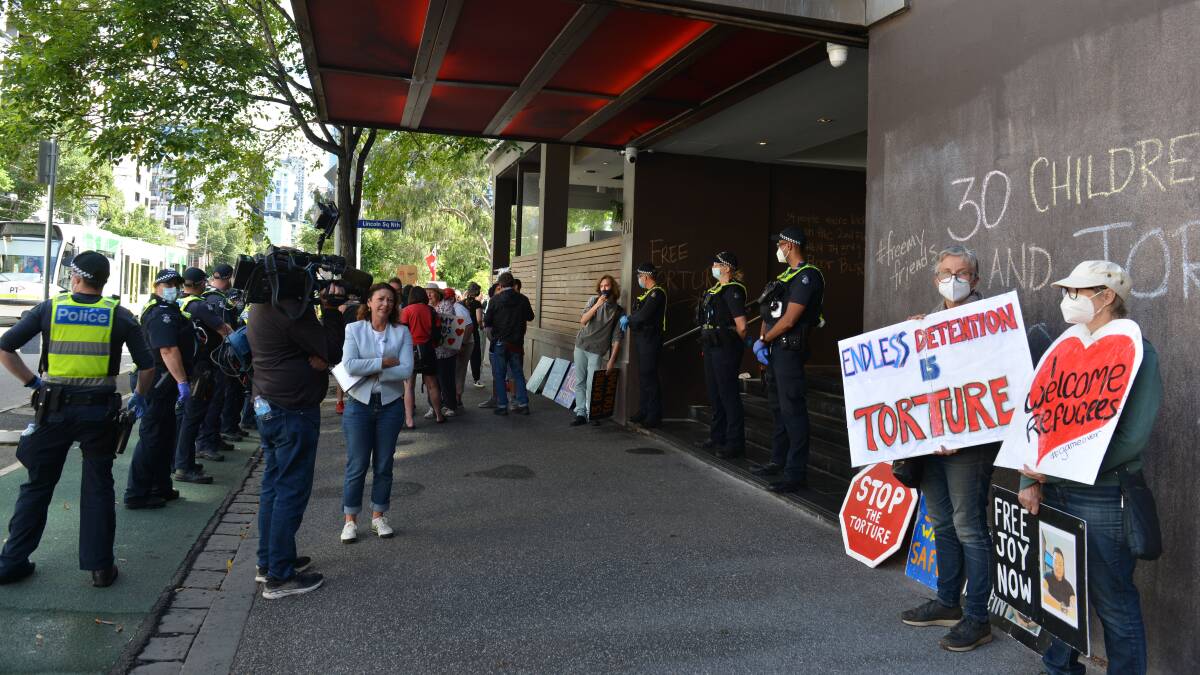
Rafael Nadal said it best when he said "no one is bigger than the sport". He was right. The sport was here before the current stars, and will be here long after they've retired. However, the last couple of weeks would make us doubt this logic given the media hype over Novak Djokovic's visa debacle.
Subscribe now for unlimited access.
or signup to continue reading
There is a silver lining to this public battle, though. The attention he has received has also drawn attention to the way the Australian government treats asylum seekers. It has also highlighted that while we are not ignorant of the political conversations around asylum seekers, many of us don't really understand what is happening and why it's a problem.
According to the Australian Human Rights Commission, an asylum seeker is "a person who has fled their own country and applied for protection as a refugee". The United Nations' Refugees Convention defines a refugee as "a person who is outside their own country and is unable or unwilling to return due to a well-founded fear of being persecuted because of their race, religion, nationality, membership of a particular social group, or political opinion".
Australia is a party to the Refugee Convention, which means we have an obligation not to return people who face a risk of human rights violation and to protect the rights of asylum seekers and refugees while they are in Australian territory, under international treaties.
However, we know these rights aren't always upheld. In fact, the Human Rights Measurement Initiative describes a pattern of human rights violations, particularly in offshore detention centres, where Australia's jurisdiction is murky at best and thus the government's international obligations are obfuscated.
The human rights reportedly violated include the right not to be subjected to arbitrary detention, torture, or cruel, inhuman or degrading treatment or punishment, the right to challenge the legality of detention, the right not to be sent back to a country where one's life or freedom would be threatened, and the right to work, education and physical and mental healthcare. Child asylum seekers and refugees are entitled to special protections, but these too have been questioned. Children and adults have experienced prolonged and indefinite detention, often without access to healthcare, education, work, and even legal aid, and the refugee status determination process has been poor.
According to the Refugee Council of Australia, since 2012 just over 4000 people have been sent to Nauru or Papua New Guinea (not including children born at the detention centres). As of September 30 last year, there were 1459 people in Australian detention facilities, with many children having lived their entire lives in detention. Nine years in detention for a 15-year-old who escaped the Taliban is mind-boggling. That he set himself on fire while in detention on Nauru is indicative of the mental turmoil detention can cause on asylum seekers.
READ MORE:
Our poor performance on human rights protections here was noted in Australia's 2021 Universal Periodic Review by the United Nations Human Rights Council in January, which resulted in 47 UN member states raising concerns about Australia's refugee, asylum and immigration detention policies. Australia's response was to defend its policy, stating that the government is playing "a leading role in our region to combat people smuggling and human trafficking", and that a critical element of this policy is to "send a clear message that people smugglers cannot sell a path to Australia".
However, in October, Home Affairs Minister Karen Andrews announced that the Australian government would cease regional processing contracts with Papua New Guinea at the end of 2021. While this doesn't solve the problem of Australian asylum seeker policy and human rights violations, it's a step in the right direction.
But we have a long way to go.
For all the fuss, Novak's legal team have highlighted the extent of the battle for people seeking entrance to our country. Our asylum seekers and refugees are literally fighting for their lives, but without Novak's wealth or influence, what hope do they have?
Australia may intend to send a message to people smugglers, but the government is also sending a message to the world that our commitment to human rights is a privilege denied to many.
- Zoë Wundenberg is a careers consultant and un/employment advocate at impressability.com.au, and a regular columnist. Twitter: @ZoeWundenberg

